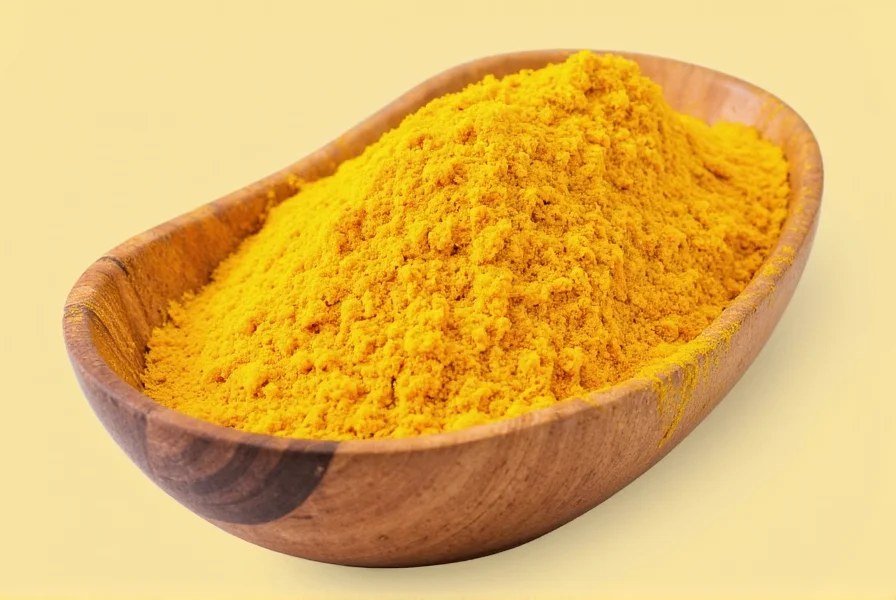Based on current medical understanding, culinary use of turmeric in normal food amounts is generally considered safe during pregnancy. However, turmeric supplements or medicinal doses are not recommended during pregnancy due to potential risks including uterine stimulation and blood thinning effects. Pregnant women should consult their healthcare provider before taking turmeric supplements.
Many expectant mothers wonder about the safety of common spices during pregnancy, particularly popular ones like turmeric. As a widely used ingredient in cooking and traditional medicine, turmeric's role during pregnancy requires careful consideration. This comprehensive guide examines what current research says about turmeric consumption during pregnancy, distinguishing between culinary use and supplement use to provide clear, evidence-based information for expecting mothers.
Understanding Turmeric: Culinary Spice vs. Medicinal Supplement
Turmeric, a bright yellow spice from the Curcuma longa plant, contains curcumin as its primary active compound. While commonly used in cooking, particularly in Indian and Southeast Asian cuisine, turmeric has gained popularity as a dietary supplement due to its potential anti-inflammatory and antioxidant properties.
The critical distinction for pregnant women lies between culinary use (adding turmeric to food in typical cooking amounts) and medicinal use (taking concentrated supplements or extracts). This difference significantly impacts safety considerations during pregnancy.

Safety Profile of Turmeric During Pregnancy
Major health organizations including the American College of Obstetricians and Gynecologists (ACOG) and the National Institutes of Health (NIH) provide guidance on spice consumption during pregnancy. According to these authorities:
| Type of Turmeric Use | Safety Status | Recommended Amount |
|---|---|---|
| Culinary use in cooking | Generally Recognized as Safe (GRAS) | Normal food amounts (⅛-¼ teaspoon per serving) |
| Standardized supplements | Not recommended | Avoid during pregnancy |
| Medicinal extracts | Contraindicated | Do not use without physician approval |
Potential Benefits of Moderate Turmeric Consumption
When used as a culinary spice in normal amounts, turmeric may offer some benefits during pregnancy:
- Natural anti-inflammatory properties - May help with common pregnancy discomforts
- Antioxidant effects - Contributes to overall cellular health
- Digestive support - May help with occasional digestive issues
- Flavor enhancement - Provides taste without excessive sodium
These potential benefits apply specifically to turmeric used as a spice in regular cooking, not to supplements or concentrated forms.
Understanding the Risks: Why Supplements Pose Concerns
The primary concerns about turmeric during pregnancy relate to higher concentrations found in supplements rather than culinary use. Research indicates several potential risks:
Uterine Stimulation
Some animal studies suggest that high doses of curcumin may stimulate uterine contractions. While human evidence is limited, healthcare providers generally recommend avoiding anything that might potentially affect uterine activity during pregnancy.
Blood Thinning Effects
Turmeric, particularly in concentrated forms, may have mild blood-thinning properties. This becomes especially relevant during pregnancy and delivery, when proper blood clotting is essential.
Medication Interactions
Turmeric supplements may interact with certain medications commonly used during pregnancy, including:
- Blood pressure medications
- Diabetes medications
- Anticoagulants
What Does the Research Say About Turmeric and Pregnancy?
Current scientific understanding about turmeric during pregnancy comes from limited human studies and more extensive animal research. A 2022 review published in the Journal of Herbal Medicine noted:
"While culinary use of turmeric appears safe based on historical consumption patterns, there is insufficient human evidence to support the safety of turmeric supplements during pregnancy. Most healthcare providers recommend avoiding concentrated forms due to theoretical risks." Journal of Herbal Medicine, 2022
The review highlighted that most safety concerns stem from animal studies using doses far exceeding normal human consumption. However, without definitive human studies, caution remains the standard medical recommendation.
Practical Guidelines for Turmeric Consumption During Pregnancy
Based on current medical consensus, here are practical recommendations for expecting mothers:
Culinary Use
Using turmeric as a spice in cooking is generally considered safe:
- Limit to typical culinary amounts (⅛ to ¼ teaspoon per serving)
- Enjoy in curries, soups, and other dishes as part of a balanced diet
- Combine with black pepper and healthy fats to enhance absorption
Supplement Use
Medical professionals typically advise against turmeric supplements during pregnancy:
- Avoid standardized curcumin supplements
- Do not take turmeric extracts or medicinal preparations
- Consult your healthcare provider before continuing any existing supplement regimen
When to Consult Your Healthcare Provider
Certain situations warrant specific discussion with your obstetrician or midwife:
- If you regularly consume turmeric supplements and become pregnant
- If you have a history of pregnancy complications
- If you're taking medications that might interact with turmeric
- If you experience unusual symptoms after consuming turmeric
Your healthcare provider can offer personalized guidance based on your specific health situation and pregnancy progression. They may recommend alternative natural remedies if you're seeking turmeric's potential benefits for specific concerns.
Conclusion: Making Informed Choices About Turmeric During Pregnancy
Navigating dietary choices during pregnancy requires balancing potential benefits with safety considerations. For turmeric, the evidence supports enjoying this vibrant spice as part of regular cooking while exercising caution with supplements. By understanding the distinction between culinary use and medicinal use, pregnant women can make informed decisions that support both their health and their baby's development.
Always prioritize open communication with your healthcare team about any dietary supplements or significant changes to your nutrition plan during pregnancy. They can provide guidance tailored to your individual health needs and pregnancy journey.
Frequently Asked Questions
Can I drink turmeric tea while pregnant?
Occasional consumption of mild turmeric tea made with small amounts of turmeric (⅛-¼ teaspoon) is generally considered safe during pregnancy. However, avoid concentrated turmeric teas or those marketed for medicinal purposes. Excessive consumption could potentially cause digestive upset or other concerns. Always check with your healthcare provider if you have specific health conditions.
Is golden milk safe during pregnancy?
Golden milk made with culinary amounts of turmeric (about ¼ teaspoon per serving) is generally safe during pregnancy. However, be cautious with recipes containing additional supplements like high-dose curcumin extracts. Traditional golden milk recipes using whole turmeric root or powder in normal cooking amounts pose minimal risk when consumed occasionally as part of a balanced diet.
What amount of turmeric is safe during pregnancy?
For culinary use, normal cooking amounts are considered safe—typically ⅛ to ¼ teaspoon of turmeric powder per serving. This amount provides flavor without delivering concentrated doses of curcumin. Avoid exceeding these amounts regularly, and never take turmeric supplements without consulting your healthcare provider during pregnancy.
Can turmeric cause miscarriage in early pregnancy?
There is no conclusive evidence that culinary use of turmeric causes miscarriage. However, some animal studies suggest high doses of curcumin might stimulate uterine activity. This theoretical risk is why medical professionals recommend avoiding turmeric supplements during pregnancy, especially in the first trimester. Normal culinary use in typical food amounts has not been associated with increased miscarriage risk in human studies.
Is it safe to take turmeric for inflammation during pregnancy?
While turmeric has anti-inflammatory properties, healthcare providers typically don't recommend turmeric supplements for inflammation during pregnancy due to potential risks. For inflammation management, consult your healthcare provider about safer alternatives appropriate for pregnancy. Culinary use of turmeric in normal amounts may provide mild anti-inflammatory benefits as part of a balanced diet.











 浙公网安备
33010002000092号
浙公网安备
33010002000092号 浙B2-20120091-4
浙B2-20120091-4